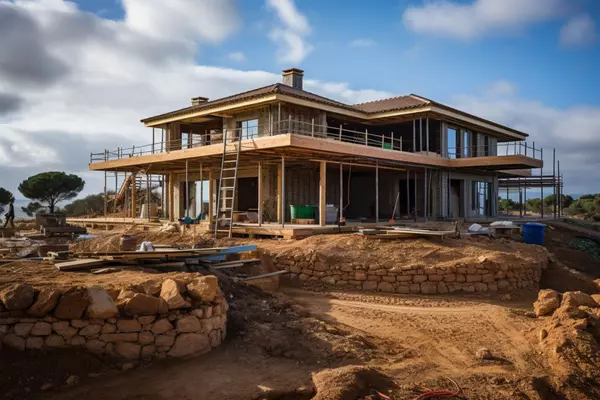Gen Zers Are Saving More Than Millennials—But Can They Afford a Home?

There are approximately 68 million Generation Z individuals in America, born between 1997 and 2012. A recent survey by Realtor.com® found that nearly half of them hope to purchase a home by 2029.
For now, more than half of Gen Zers still live with family, which might explain why they have been able to accumulate more savings than any other generation. But despite their impressive financial discipline, they still face significant barriers to homeownership.
Gen Z Saves More Than Any Other Generation
A study by Talker Research found that 21% of Gen Zers save between 1% and 10% of their monthly income, while another 25% set aside 11% to 20%. Impressively, 12% save between 21% and 30% of their earnings, and 5% even manage to save their entire paycheck.
This level of saving surpasses that of previous generations. Among millennials (born 1981-1996), 30% save up to 10% of their income, while 24% save between 11% and 20%. However, 26% of millennials do not save anything each month, compared to only 16% of Gen Z.
Meanwhile, 32% of baby boomers (born 1946-1964) admit to saving nothing at all, aligning with a Charles Schwab report that found 45% of boomers prioritize spending their money on themselves while they can.
Why Isn’t Gen Z Buying Homes?
Despite their savings, Gen Z makes up only a small portion of the housing market. According to the National Association of Realtors® (NAR), only 3% of home buyers and 2% of sellers are aged 18-24.
One major factor is income. Gen Z is entering the workforce at the lowest income levels, with an average annual salary of $45,000. Many are also single and without dependents, reducing the financial incentives to buy.
Another challenge is the high cost of homeownership. In the 200 largest U.S. metro areas, Gen Z buyers spend an average of 37% of their income on mortgage payments—far above the 26% that the typical homebuyer spends. This financial strain makes homeownership less accessible for younger buyers.
Where (and How) Is Gen Z Buying?
Gen Zers are finding success in more affordable housing markets, particularly in the Midwest. CoreLogic reports that Gen Z home purchases are more common in cities like Akron, OH, where lower costs make homeownership more attainable.
Real estate agent Ali Whitley of Re/Max Crossroads notes, "Gen Zers are becoming first-time homebuyers here because it's a great area with affordable prices."
In 2024, 13% of all U.S. home purchase applications came from Gen Z buyers, up three percentage points from the previous year. However, many of these young buyers are not purchasing alone—around 45% of applications included co-applicants, such as friends or family members, to make homeownership more feasible.
How Much Does a Down Payment Cost in 2025?
While conventional loans often suggest a 20% down payment, most first-time homebuyers put down much less. Real estate expert Denise Supplee from SparkRental in Doylestown, PA, observes that "down payments are closer to 5% to 10% for many buyers today."
According to NAR data, the average down payment for first-time buyers is 9%. Given that the national median home price in January was $400,500, a 9% down payment would amount to $36,045.
At a 6.95% interest rate for a 30-year fixed mortgage, a home priced at $400,500 with an 8% down payment would result in a monthly payment of $2,413—excluding taxes and insurance.
Meanwhile, the national median rent as of December 2024 was $1,695 per month, making renting significantly more affordable for many young people.
Will Gen Z Be Renters Forever?
Currently, Gen Z is the only generation adding more renters to the market, according to the Joint Center for Housing Studies of Harvard University. They are entering real estate at a challenging time, with high interest rates, limited housing inventory, and rising prices.
An Insurify poll found that 13% of Gen Zers who aspire to own a home believe they will never be able to afford it. Nearly half cite housing costs as their biggest financial stressor, while 23% say uncertainty about their finances makes future planning difficult.
However, many Gen Zers are finding creative ways to navigate these obstacles. Some are co-buying homes with friends, using house hacking strategies, or relocating to more affordable cities to achieve their homeownership dreams.
While Gen Z faces financial hurdles, their strong savings habits and willingness to adapt could help them carve out a path to homeownership in the coming years.
Categories
Recent Posts





GET MORE INFORMATION
Licensed Real Estate Consultant | License ID: S.202562

